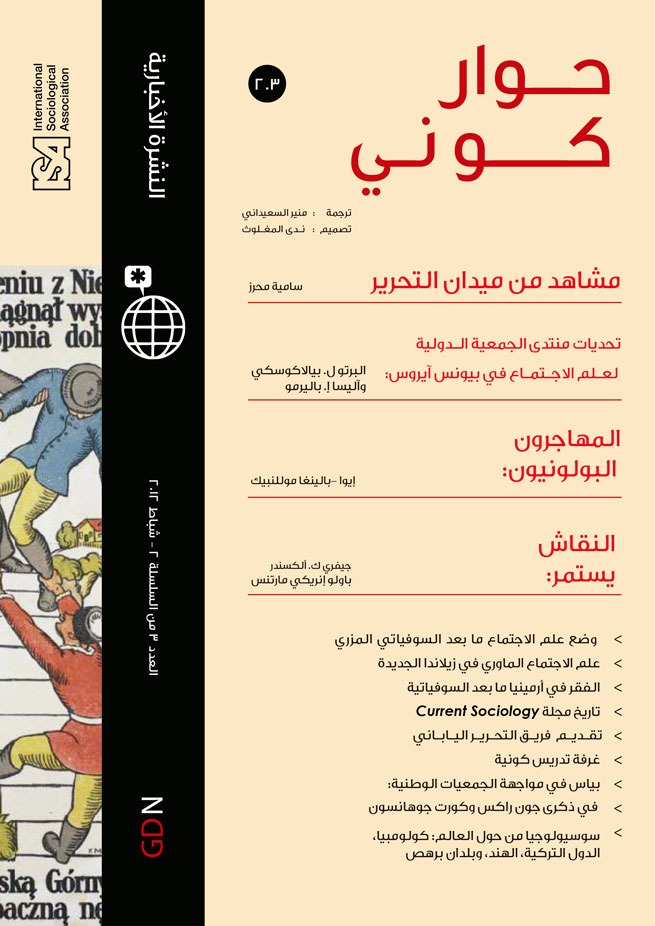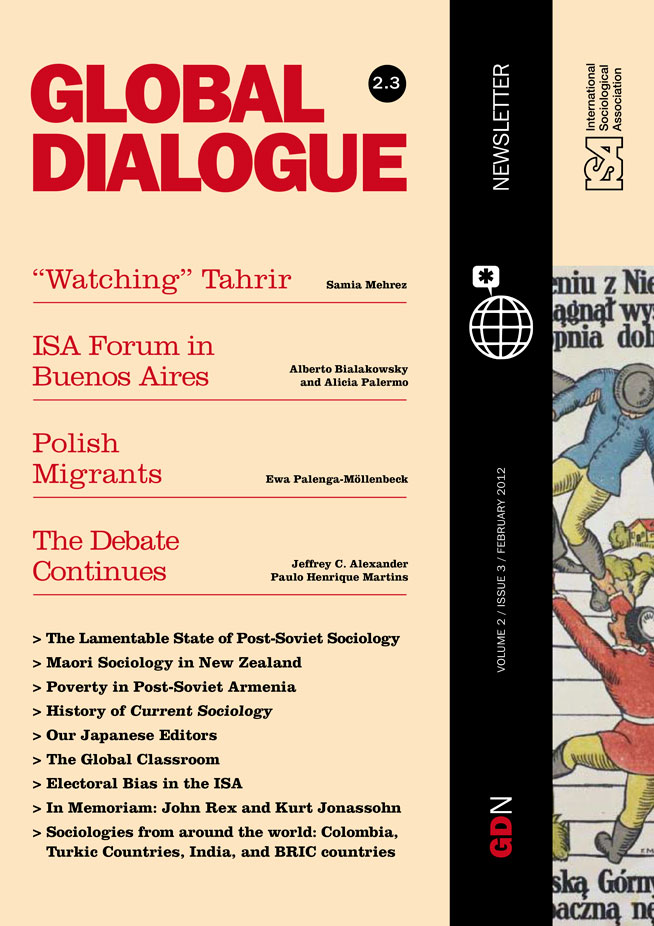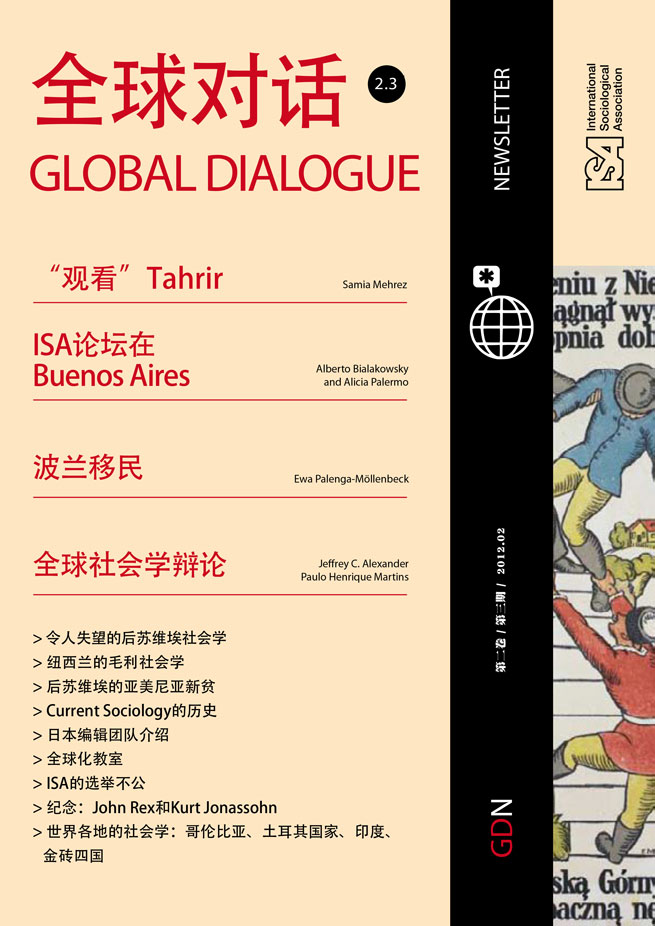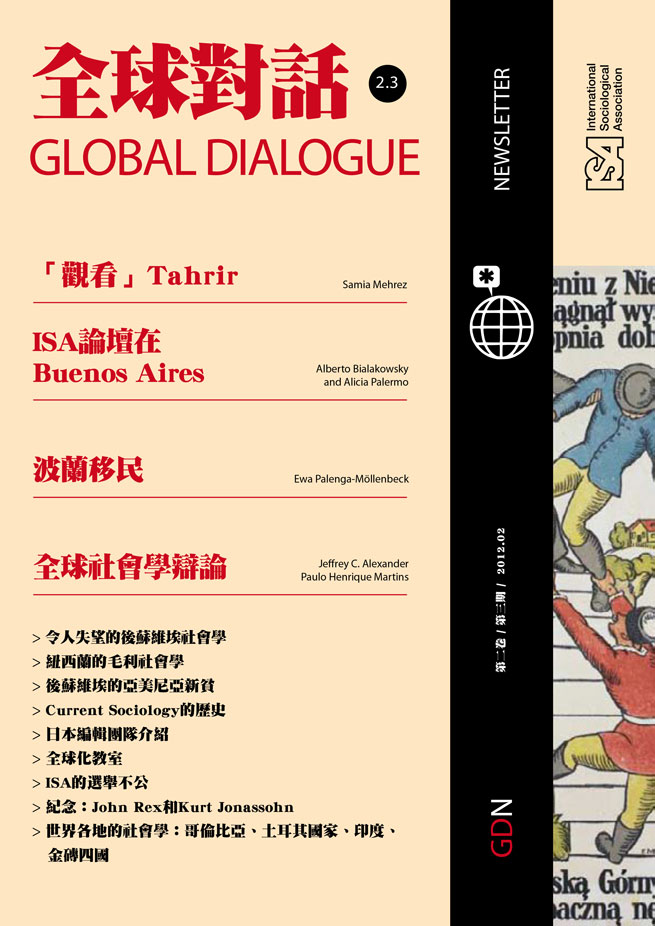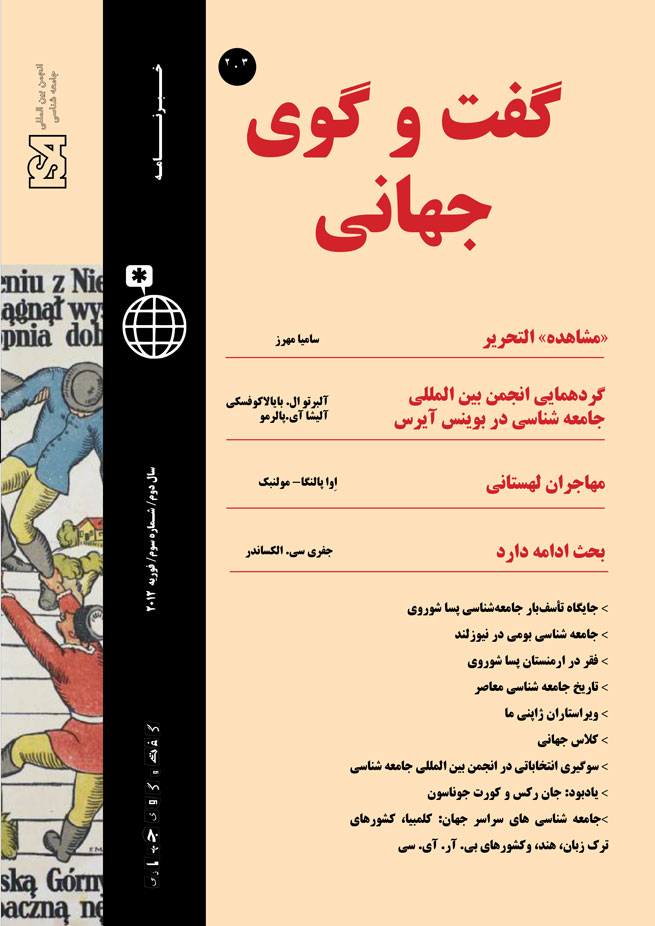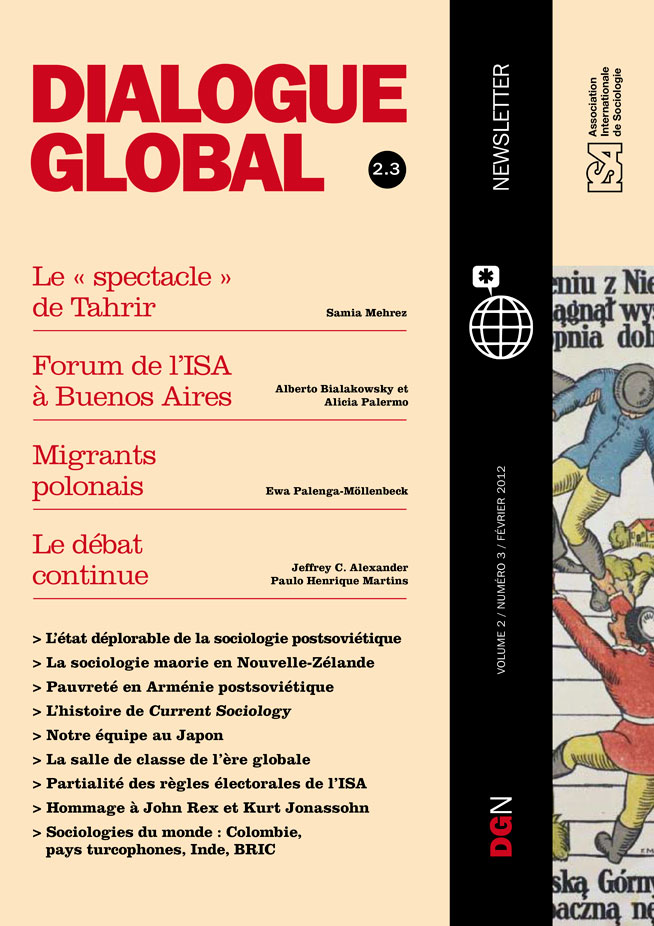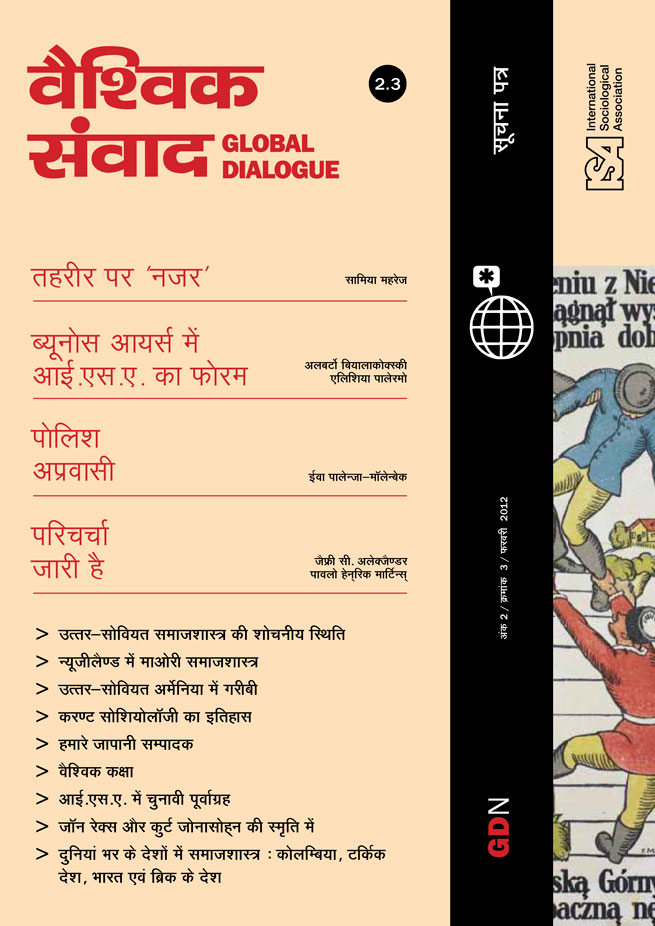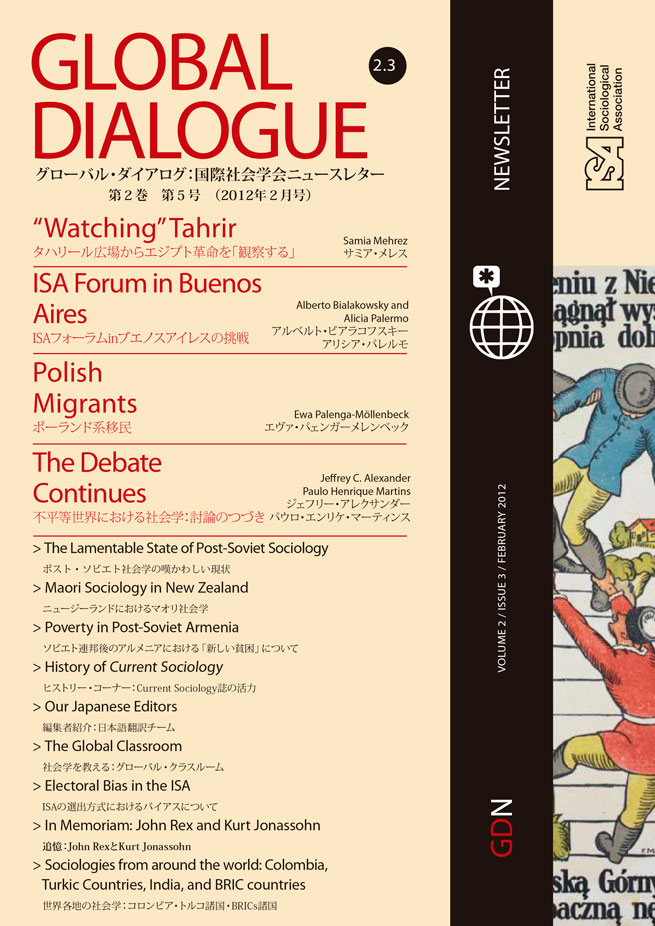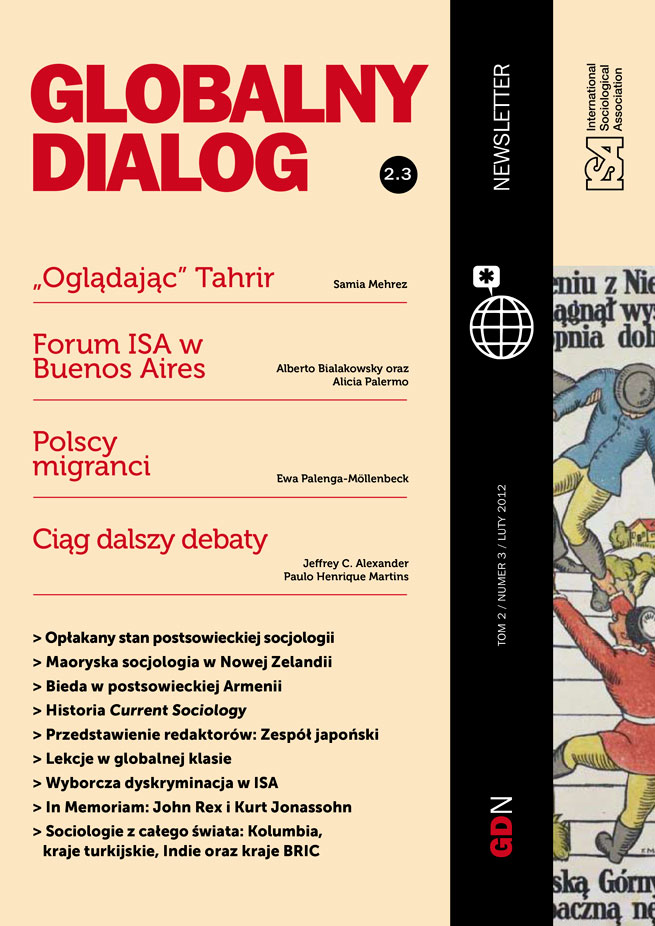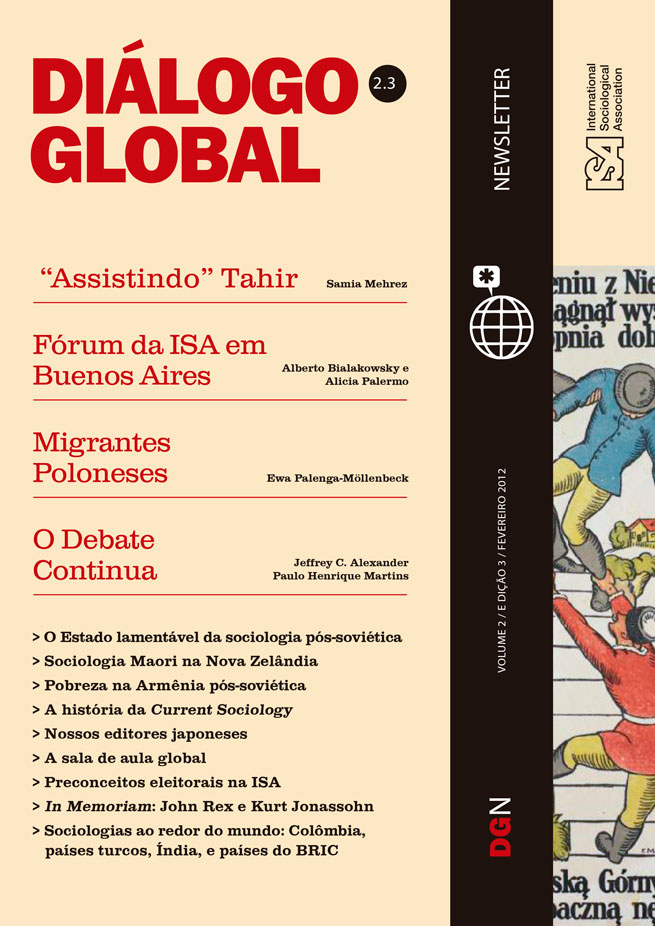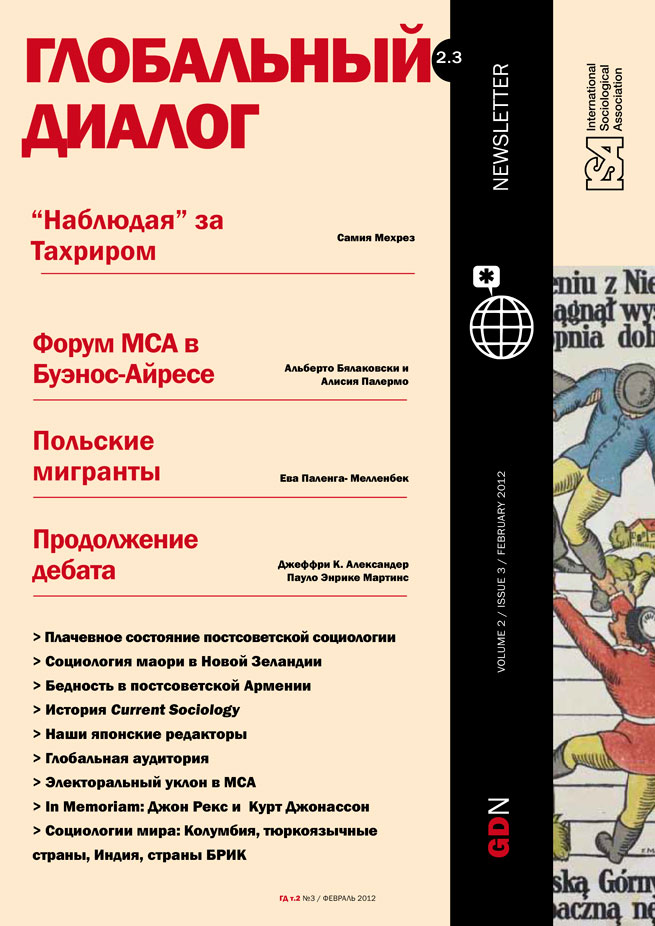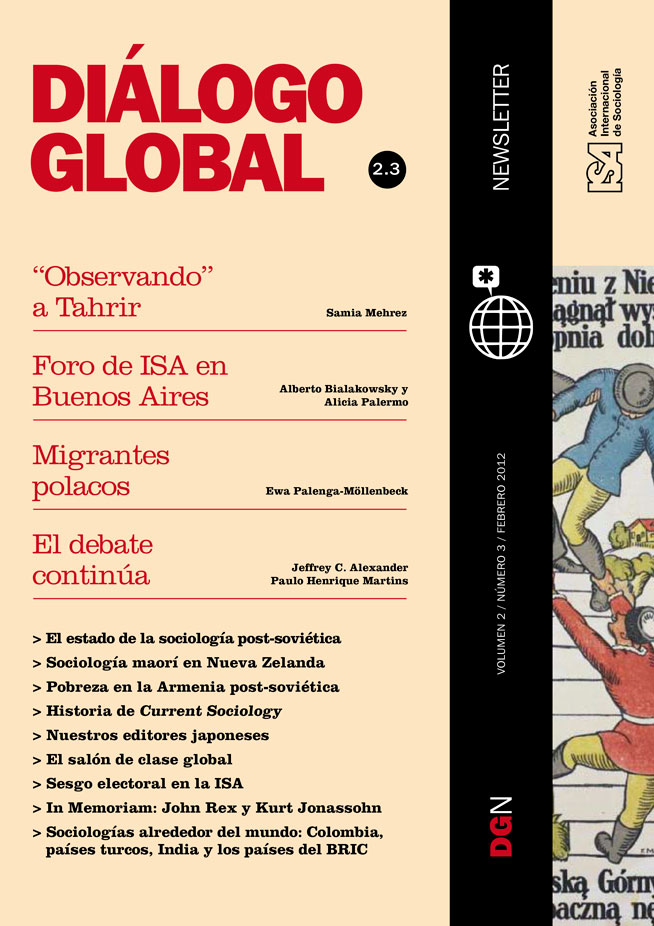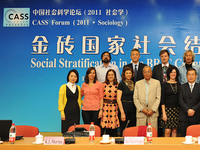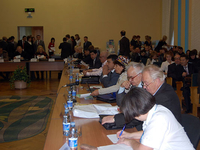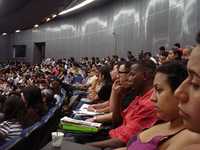The Indian Sociological Society’s Diamond Jubilee
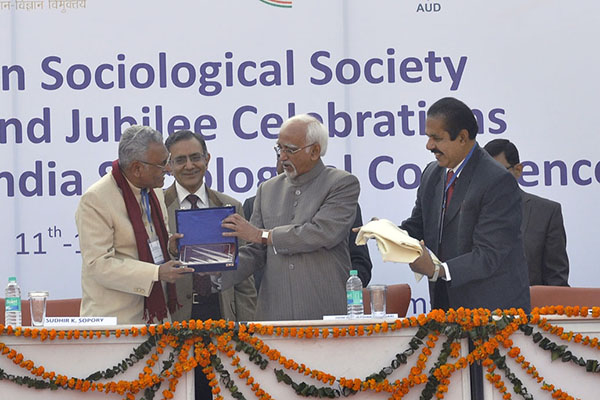
March 01, 2012
The Diamond Jubilee Conference was held during December 11-13 (2011), at the Jawaharlal Nehru University (JNU), New Delhi. The Conference was hosted by the Centre for the Study of Social Systems (CSSS) JNU, a prominent department of sociology in India. Professor Anand Kumar, the dynamic organizing secretary of the Conference, is on the faculty of CSSS.
The ISS conference now held annually has a three-tier structure: plenary sessions (inaugural, valedictory and two memorial lectures); symposia that may often take place as parallel sessions; two dozen research committees (RCs) which meet separately. Both pre-conference and post-conference sessions are organized in cities other than the ones in which the main conference takes place. In the last few years the young sociologists’ conference is also organized just before the main conference. As part of the Diamond Jubilee celebrations two special pre-conference meetings were held in Bombay and Lucknow, the two main centers where teaching and research in sociology started in India.
The Diamond Jubilee was inaugurated by a scholar-statesman, the Vice-President of India, His Excellency Hamid Ansari, who recognized the relevance of sociology in addressing the crises the contemporary world is facing and, in this context, underlined the signal importance of public sociology. J. J. Kattakayam, the present President of ISS, got the main deliberations off to a flying start by addressing the conference theme, “Sociology and Social Transformation in India.”
The inaugural session also witnessed the annual custom of honoring outstanding Indian sociologists. Three of them –S. K. Srivastava (Benares Hindu University), P. K. B Nayar (Kerala University) and J. P. S. Uberoi (Delhi University) were given Lifetime Achievement Awards. Following the Indian tradition of respecting the old, all the past living Presidents of ISS were also honored on the occasion of the jubilee.
The themes of the five symposia were: Sociology and the Crisis of Social Transformation – An International perspective; Crisis of Governance; Crisis of Extremisms; Crisis of Development and Issues of Marginalization; Society and Sociology in Delhi. The first symposium was global in its tenor, the last was local in its flavor, and the remaining three were India-centric. Thus, the global-national-local continuum was covered. I do not intend to comment on these symposia but it is appropriate to make passing reference to the first symposium as I’m writing for global readers. There were four speakers drawn from USA, Sweden, Germany, and Japan. The President of ISA, Michael Burawoy (USA) delivered the keynote address and I chaired the symposium. Professor Burawoy underlined the importance of social movements to understand the ongoing crisis of transformation, declaring them to be both a symptom and a solution. I focused on the inextricable intertwining between the discipline of sociology and the phenomenon of social crisis and transformation. The other three speakers spoke with reference to their respective countries.
Reflecting the plural character of the evolving Indian sociology, the subjects of the two memorial lectures were “Social Mobility and Social Structure –Towards a Conceptual and Methodological Reorientation” (the M. N. Srinivas memorial lecture), delivered by Professor P. N. Mukherjee, and “From Ideal-type to Metaphor – Reconsidering the Concept of Revolution” (the Radhakamal Mukerjee memorial lecture), delivered by Professor D. N. Dhanagare, both past Presidents of ISS. Professor Dipankar Gupta, a relatively younger sociologist, gave the Valedictory Address: “Delivering Governance – Citizenship, Growth and Development.”
The Book of Abstracts contained 775 abstracts of papers read at the 22 Research Committees (RCs). The largest number of papers were submitted to two RCs – Rural, Peasant and Tribal Communities, and Social Change and Development, while the lowest number were submitted to the RCs on Education and Society and Theory, and Concept and Methodology, perhaps indicating the current trend of research interests in Indian sociology.
On the occasion of the Diamond Jubilee a special issue of the Sociological Bulletin, the official journal of ISS, published two long research papers, one on the history of ISS by Professor A. M. Shah and the other, focusing on an analysis of 50 years of the Sociological Bulletin, written by its present Managing Editor, Professor N. Jayaram. In addition Sage Publishers brought out seven volumes of research papers published in the Sociological Bulletin, six of which are on different themes –Indian Sociology, Changing Caste, Agrarian Change, Those on the Margins, Education, Social Movements – and the seventh one consists of selected presidential addresses.
On the whole the ISS Diamond Jubilee Conference was a memorable event in which some 1500 delegates participated. This short account of the conference may provide an occasion for other national associations to situate theirs in a comparative perspective. More importantly, the event was a reminder to Indian sociologists that they have to travel many more miles.
T. K. Oommen, Jawaharlal Nehru University, New Delhi, India, Chair of the ISS Organizing Committee, and former ISA President, 1990-1994

